Are you passionate about making a difference in the lives of others? Crafting a compelling sponsorship letter for a humanitarian project can be the key to unlocking support from potential partners. In this article, we'll explore effective strategies and essential elements to include in your letter, ensuring your message resonates with readers. Join us as we dive into the art of persuasive letter writing and discover how you can inspire action!
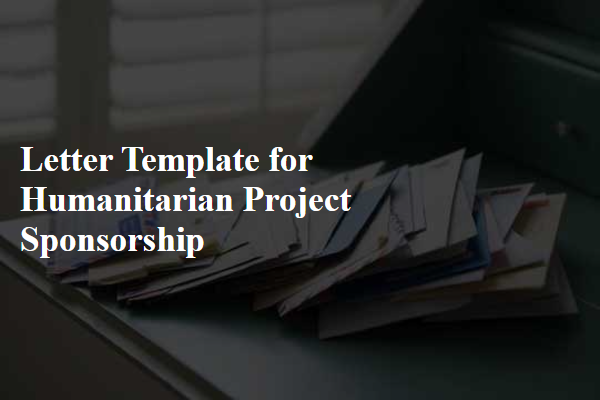
Clear Project Description
The humanitarian project aims to provide clean drinking water to underserved communities in Sub-Saharan Africa, specifically targeting regions such as the Sahel Zone, where approximately 19 million people face water scarcity. The initiative includes the construction of sustainable wells using local materials, training community members on maintenance and hygiene practices, benefiting an estimated 12,000 individuals in the process. Collaboration with local NGOs and government agencies will ensure effective implementation and alignment with existing health initiatives. This project will not only address immediate water needs but also promote long-term health improvements and economic development within these communities. Supporting this venture could significantly reduce waterborne diseases, fostering a healthier population and a more resilient society.
Defined Goals and Objectives
Humanitarian projects often aim to address critical needs in communities affected by disasters or socio-economic challenges. Defined goals may include improving access to clean water, providing medical assistance to underserved populations, or enhancing educational opportunities for children in conflict zones. Objectives, such as reducing waterborne diseases by 30% within two years or increasing literacy rates among adolescents by 15% through innovative learning programs, guide the project's implementation. Collaborating with local organizations, such as UNICEF in refugee camps or Water.org for sanitation initiatives, ensures tailored approaches that resonate with the community's cultural context. Regular assessments, utilizing metrics like the number of beneficiaries served or improvements in health indicators, measure success and guide future efforts in sustainable development.
Impact and Benefit Statement
A humanitarian project aimed at providing access to clean drinking water has the potential to transform communities in rural Africa, particularly in regions like Sub-Saharan Africa with limited infrastructure. This initiative will benefit over 10,000 residents by reducing water-related illnesses, which claim about 2.2 million lives annually, according to the World Health Organization. By installing sustainable water purification systems, the project increases health outcomes, lowers healthcare costs, and improves children's school attendance, as families no longer spend hours collecting water. Furthermore, enhancing water accessibility enables local women to devote more time to economic activities, significantly boosting household incomes and contributing to community development. Long-term impacts include increased agricultural productivity due to better irrigation and improved overall quality of life for all community members.
Sponsorship Levels and Benefits
Sponsorship levels in humanitarian projects play a crucial role in determining the impact and reach of initiatives intended to aid communities in need. Premier sponsorship, often valued at $50,000 or more, provides sponsors with prominent branding opportunities at events, recognition in press releases, and direct engagement with beneficiaries. Major sponsorship, typically ranging from $25,000 to $49,999, includes branding on promotional materials, acknowledgment in social media campaigns, and invitations to exclusive networking events. Supporter sponsorship, valued between $10,000 and $24,999, allows brands to have their logo featured on project websites and printed materials, fostering community connection and visibility. Community sponsors, contributing between $5,000 and $9,999, receive recognition at local events and updates on project progress, creating awareness of their commitment to humanitarian efforts. In-kind donations and volunteer opportunities can further enhance the experience for sponsors, facilitating direct engagement with the project and its beneficiaries.
Call to Action and Contact Information
Humanitarian projects, such as food distribution programs in regions affected by conflict or natural disasters, often rely on sponsorship and donations to sustain their efforts. For instance, initiatives like the Global Food Fund provide critical supplies to over one million people in under-resourced communities. Contact information for these sponsors typically includes a call to action encouraging potential donors to contribute, whether through financial support or in-kind donations. Additionally, platforms like PayPal or donation websites may facilitate the process, offering secure transactions and transparency. Engaging with local and international organizations can also enhance outreach, ensuring that project goals are met effectively.
Letter Template For Humanitarian Project Sponsorship Samples
Letter template of notification for upcoming humanitarian project sponsorship
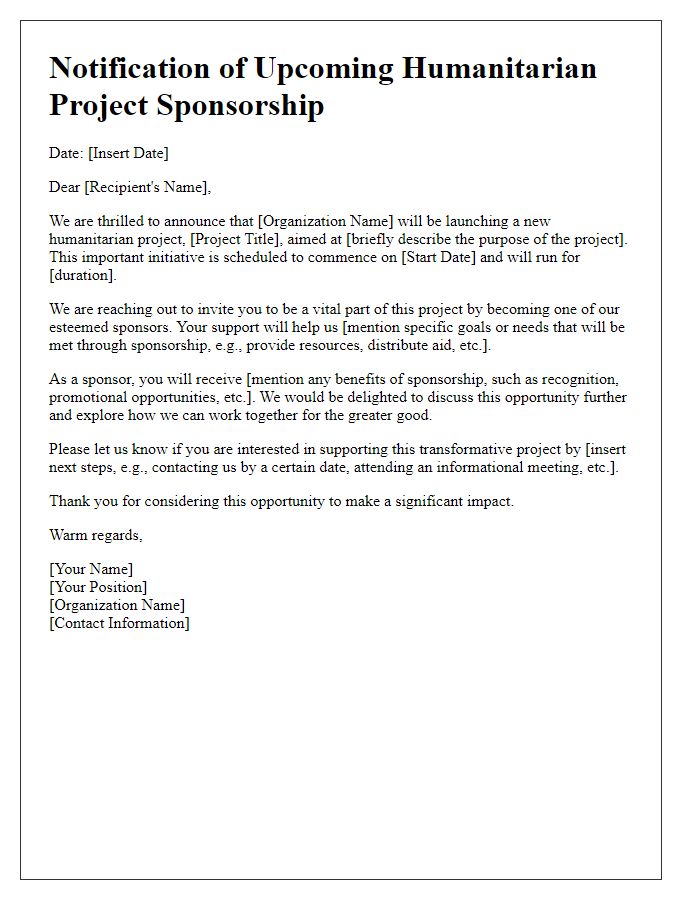
Letter template of reminder for sponsorship renewal in humanitarian projects
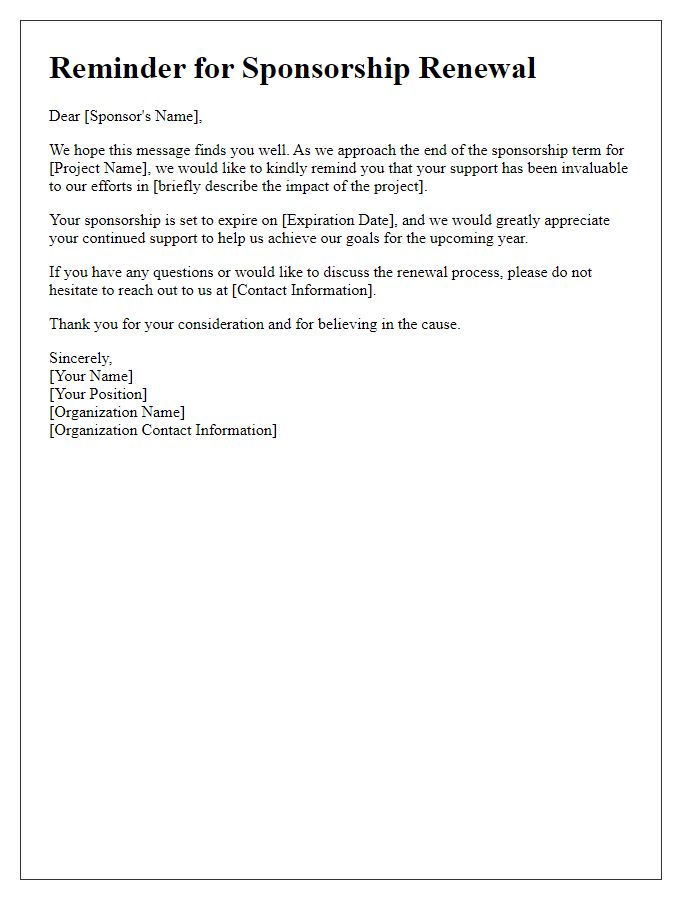

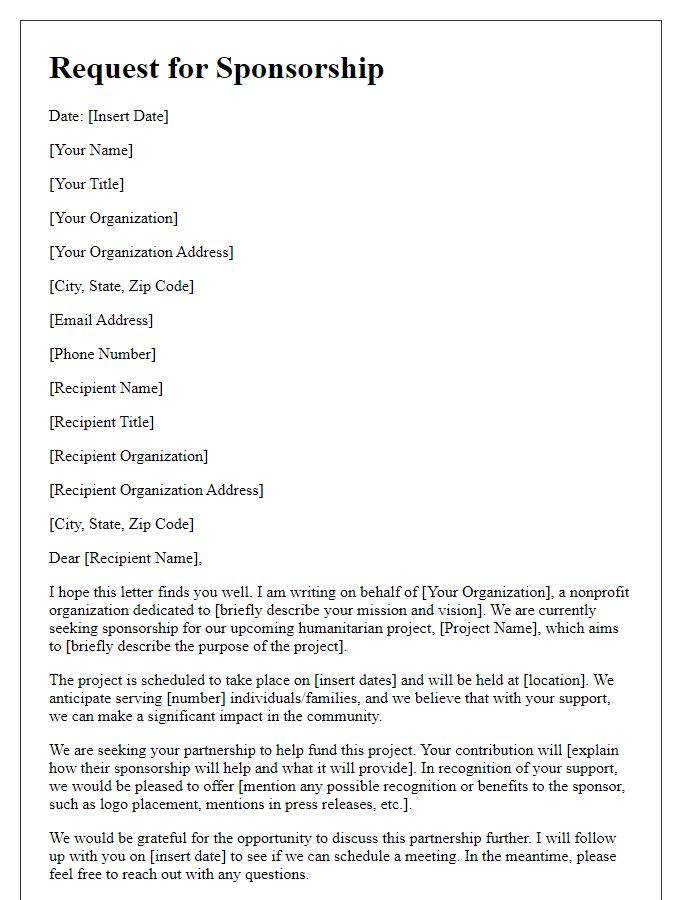
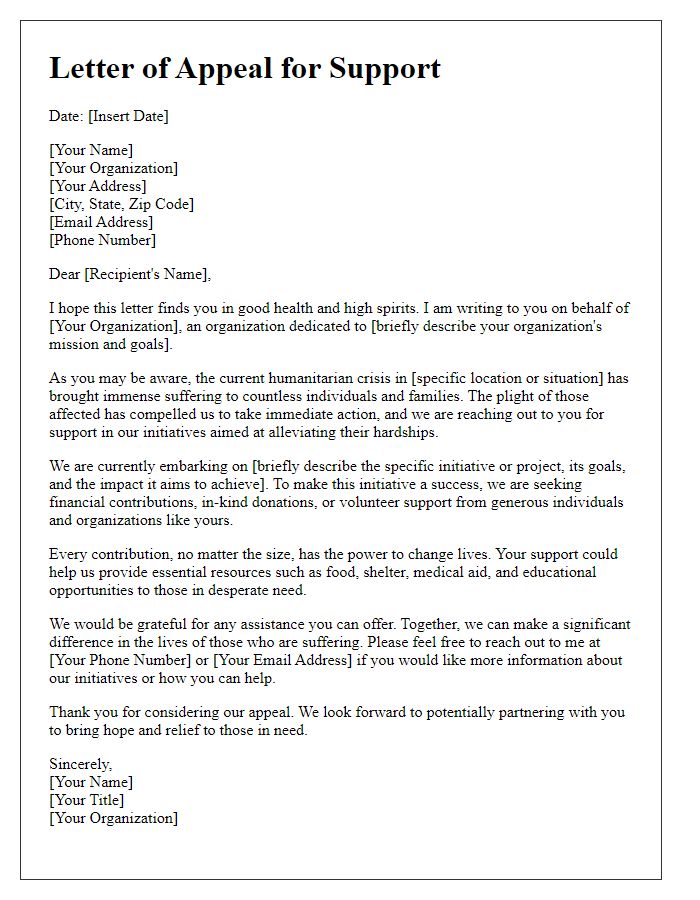
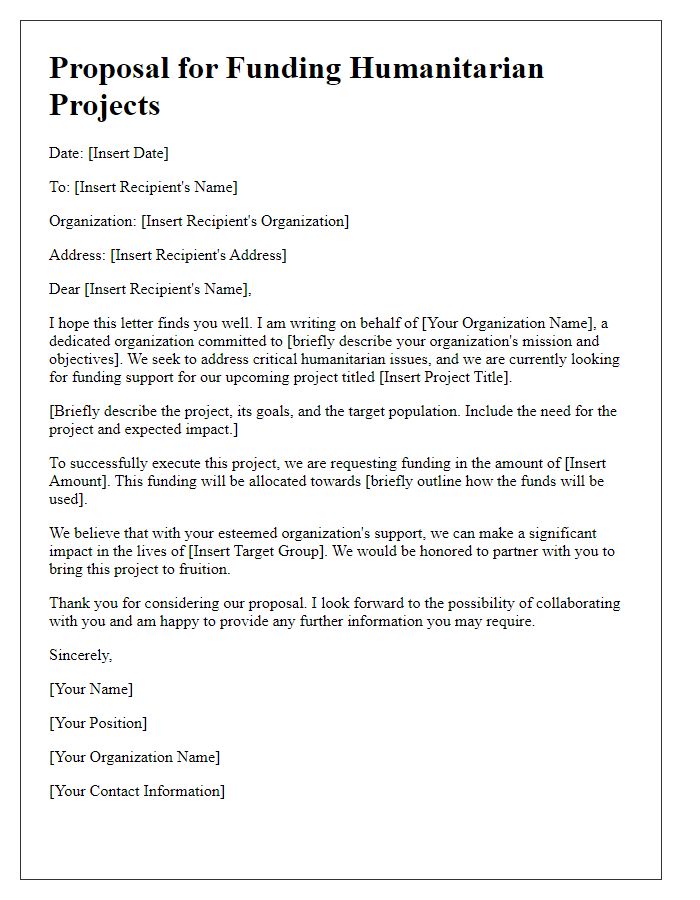
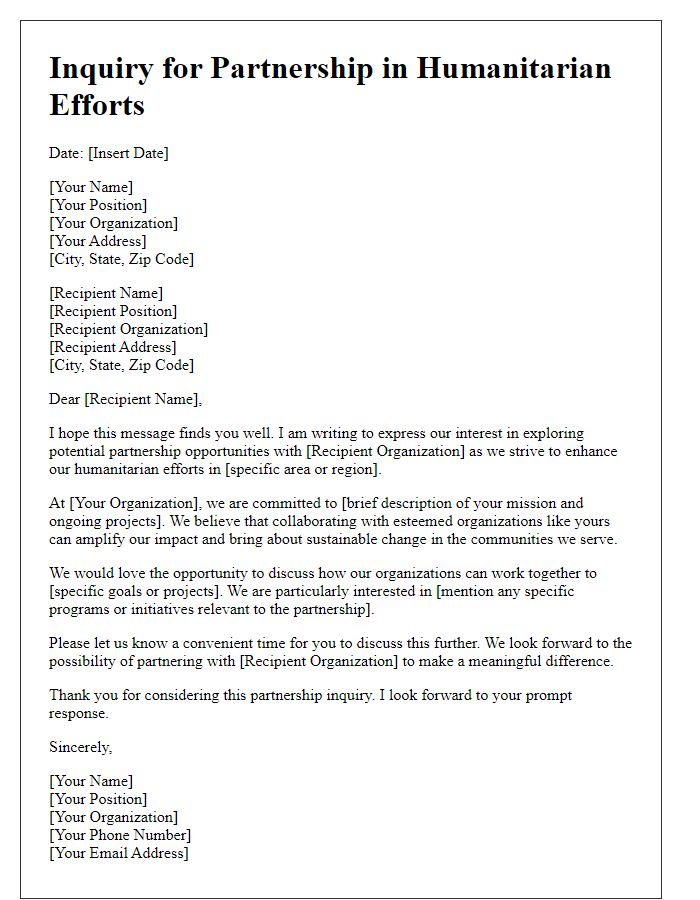

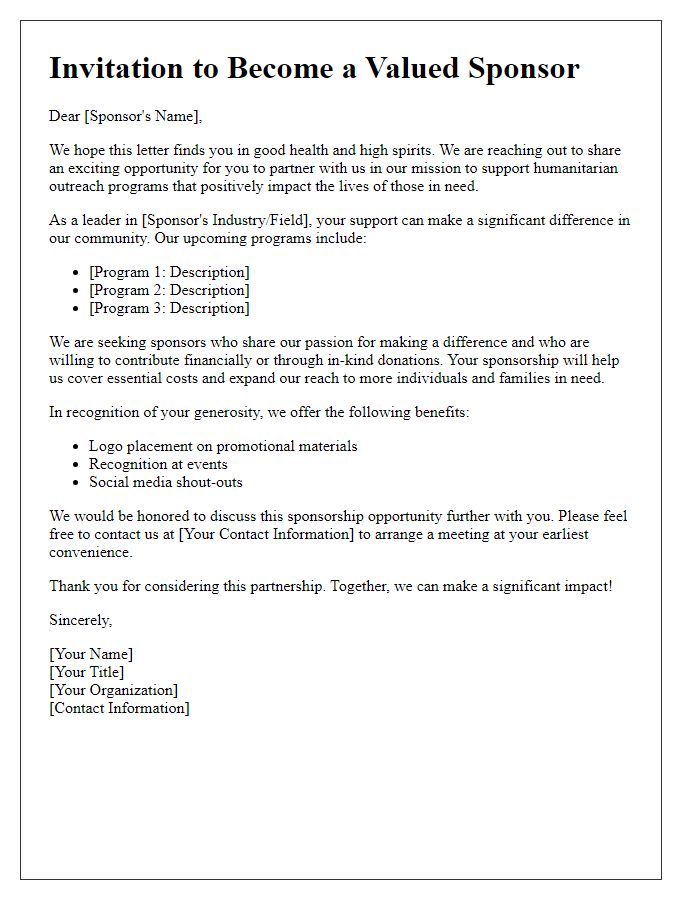
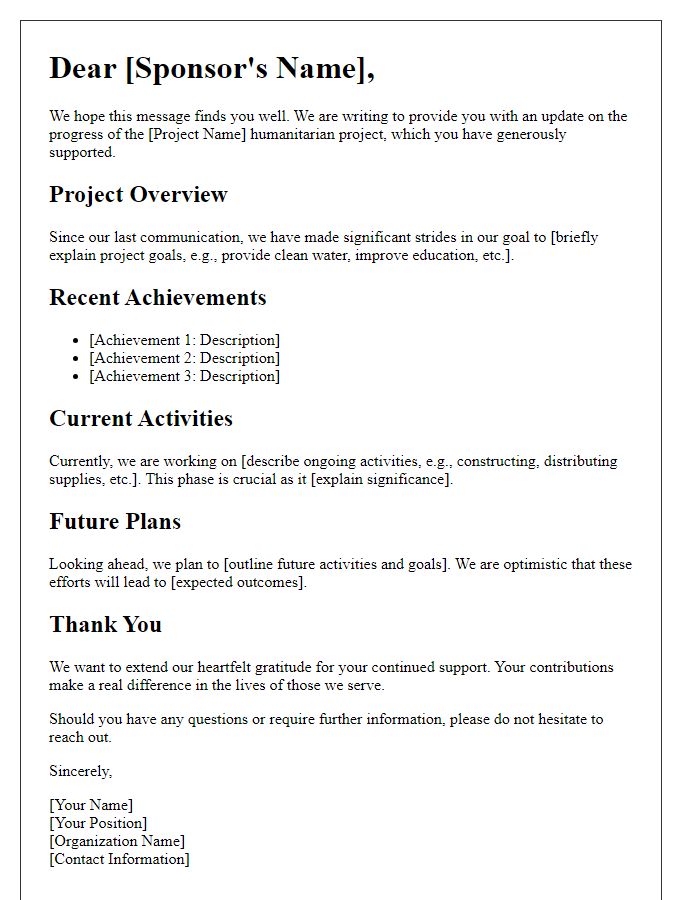
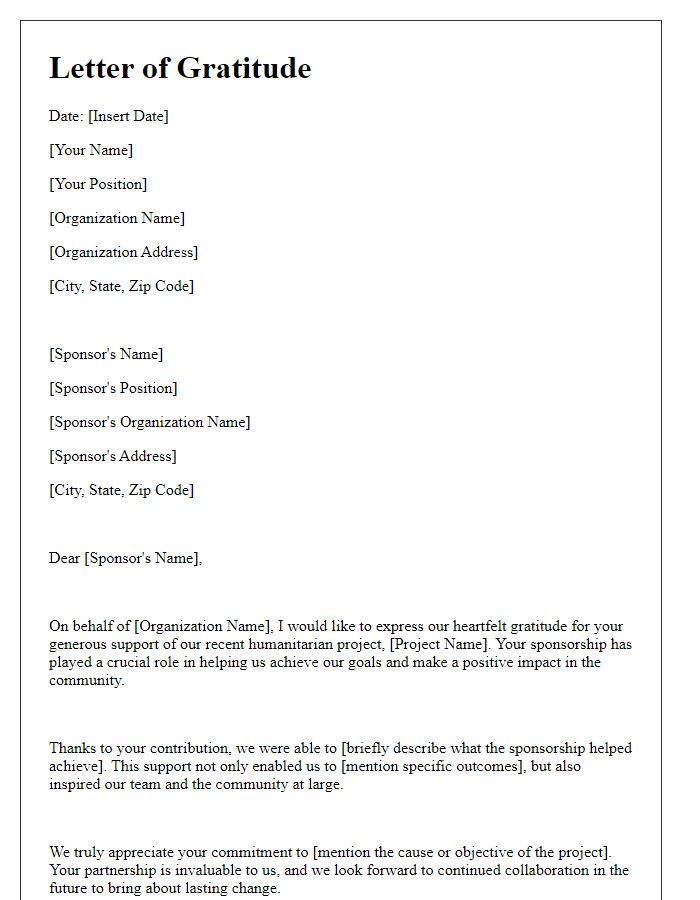


Comments